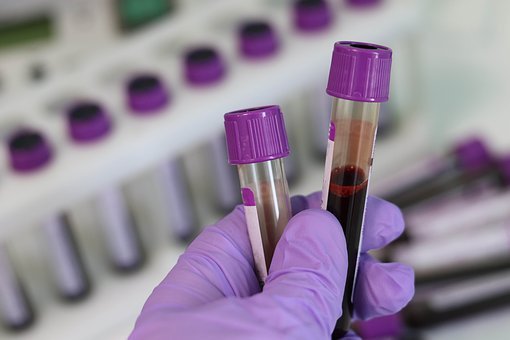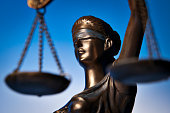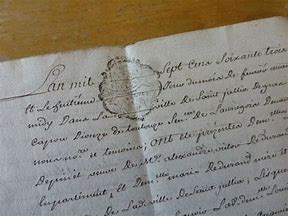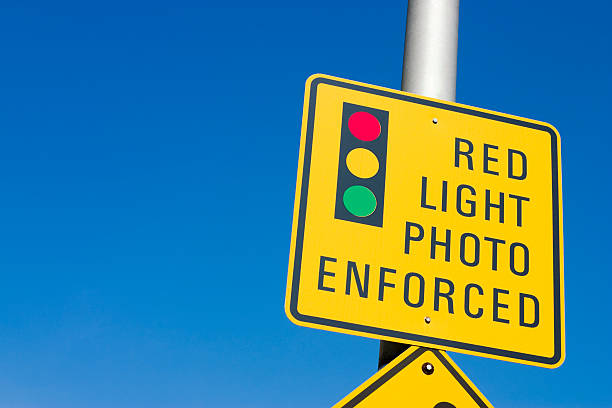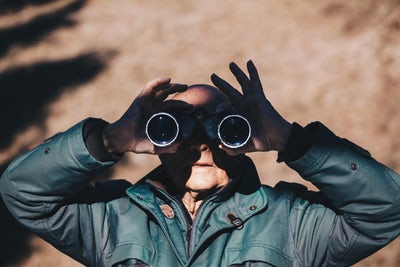Accident, Car Accidents, How to Be a Good Plaintiff, Motorcycle Accidents, Traumatic Brain Injury, Truck Accidents
Blood Test May Detect “Unseen” Brain Injury
NEW ORLEANS, LA — Traumatic Brain Injury (TBI) is a leading cause of death worldwide, with an average of 155 people in the United States dying each day from injuries which include TBI. At The de Boisblanc Law Firm, we’re actively involved in securing justice for victims of TBI caused by another person’s negligence, and part of our efforts include keeping current with the latest advances in treatment, along with cutting edge methods of early TBI detection, so that treatment can be more effective.
Currently, methods of early detection are limited. Accident victims may not show pathology in CT or MRI scans which would support a TBI diagnosis, even though a brain injury has occurred. The victim may miss out on crucial medical interventions and appropriate treatment. However, a promising new advancement offers accident victims in the emergency setting the possibility of an early TBI diagnosis.
Medical researchers have discovered that plasma concentration of glial fibrillary acidic protein (GFAP) correlates with intracranial injury visible on CT scan. Perhaps more critically, this protein may concentrate in the blood after a head injury even when there are no positive findings using a CT scan or MRI scan. In layman’s terms, this means that a simple blood test done post-accident in the ER has the ability to alert medical professionals that a brain injury has occurred, even if radiological methods can’t detect your injury. Early intervention and rehabilitation for severe TBI are known to improve outcomes, giving the plasma GFAP test the potential to be an invaluable tool.
Studies regarding plasma GFAP are ongoing, and potential protocols are being discussed which consider utilizing the test to structure treatment in patients who show no visual or radiological evidence of TBI. This is important because many cases of TBI can’t yet be detected by CT or MRI scan, and there are many different mechanisms for causing injuries to the brain which leave very subtle signs.
Should this test become available and commonly used in local emergency departments, early detection of TBI will increase. So will the accident victim’s ability to secure justice for a TBI caused by someone else’s negligence. It can be difficult to prove the Traumatic Brain Injury to an insurance company, especially in mild cases where CT or MRI scans produce false negatives. The detection of a concentration of glial fibrillaryacidic protein provides objective evidence of injury.
The de Boisblanc Law Firm is experienced in fighting for justice for victims of Traumatic Brain Injury. If you or someone you love has received a Traumatic Brain Injury due to the negligence of another person or group, it’s important that you engage an experienced attorney as soon as possible, who can protect your rights and fight against the insurance companies while you focus on healing. Call The de Boisblanc Law Firm today to schedule your free consulation.
Car Accidents, How to Be a Good Plaintiff, Truck Accidents
Your Criminal Record isn’t Their Defense for Injuring You
NEW ORLEANS, LA — You’ve been seriously injured by another person’s negligence, and have had to file a lawsuit. Or maybe you’re just starting the claims process, and you believe you might be forced to file a lawsuit because the insurance company isn’t being fair with you. At some point in the litigation process, the insurance company’s lawyers are going to ask you if you’ve ever been arrested or convicted of a crime. If the answer is yes, especially if you don’t have a lawyer to advise and protect you, admitting to past involvement with law enforcement might frighten you. It might even discourage you from pursuing a claim. You don’t want this past history coming out in civil court. You fear the insurance company’s lawyers will use this against you. You may even feel like having an arrest record somehow turns you from the victim of another person’s negligence into a guilty party. So, how concerned should you be about a past criminal history, if you’ve been injured by someone else?
The answer is complicated. While it may seem unfair that having a criminal record could affect your pursuit of justice, insurance companies have a right to investigate claims to discover any potential fraud. Also, under certain circumstances, a past criminal history can be used against you in court, if that history demonstrates that you’ve been a dishonest person. However, when an insurance company asks if you’ve “ever been arrested,” they’re fishing for information that can’t necessarily be used against you.
Louisiana law wisely attempts to balance the right of injured parties not to have past transgressions held against them, with the right of insurance companies to protect themselves against fraudulent or dishonest claimants. Louisiana Code of Evidence Article 609 allows defendants to attack a plaintiff’s credibility only by revealing to a jury the name of the crime you have been convicted of, and only then if it involves “dishonesty or false statement,” or if it is punishable by death or more than six months in prison if a judge feels that this information’s importance to the case outweighs the prejudice such a revelation will create against you. And in both cases, if it’s been more than ten years since your conviction date, or if you were later pardoned or the judgment annulled, then it isn’t admissible. Juvenile judgments are generally not admissible, either.
Despite the requests for disclosure that the defendants will make from you or your attorney, a record of arrests, indictments, and prosecution can’t be used to attack your credibility at all. From the perspective of a person protecting a plaintiff’s rights, the defense, when asking if you’ve ever been arrested, is throwing a wide net in hopes of catching some foolish fish!
If you’ve been convicted of a crime that can be used against you, you still shouldn’t fear pursuing your claim. People who make mistakes get injured too. If justice is to truly be blind, we must fully examine the merits of each case. We must recognize that having a past conviction isn’t a defense for someone to hurt you. If you’ve been the victim of someone else’s negligence, don’t let a past criminal record stop you from seeking justice. Call the experienced attorneys at The de Boisblanc Law Firm today!
Accident, Car Accidents, How to Be a Good Plaintiff, Traumatic Brain Injury, Truck Accidents
Healing Traumatic Brain Injury
NEW ORLEANS, LA — Experienced in the handling of Traumatic Brain Injury cases, The de Boisblanc Law Firm understands the unique challenges faced by TBI patients. We’re not just committed to winning TBI victims money for their injuries; we’re also determined to help our clients increase their awareness of developing therapies and positive lifestyle changes which could lead to health improvements for TBI patients.
In previous articles we’ve discussed the complex injuries that are known generally as Traumatic Brain Injury (TBI). TBI interrupts the normal functioning of the brain. Victims experience a range of symptoms from “brain fog” and emotional changes, to coma and loss of vital functions. The symptoms can resolve over time, they can be a part of a permanent change, or the injury can be fatal. The American Academy of Neurosurgeons estimates that nearly 1.7 million brain injuries occur each year, and of these, up to 70% may be caused by motor vehicle collisions. According to the CDC, motor vehicle crashes are the leading cause of TBI death for persons 5-24 years of age.
Due to the frequency of TBI, a great deal of research is ongoing to help understand how best to treat it. An increasing number of studies demonstrate that environmental and lifestyle factors, such as diet, can have a major impact on a TBI patient’s treatment outcome. For example, research shows that omega-3 fatty acids, can increase production of molecular systems that serve synaptic function, while diets rich in saturated fats do the opposite.
According to this study, vitamin E, found in certain nuts, oils, and vegetables such as spinach, functions as an antioxidant and is useful in “reducing free radicals in the brain which would otherwise impede optimal function of neurons.” Curcumin and caffeine are also examined for their effects on brain health.
Vitamin D supplements also are shown to help reduce inflammatory response and reduce neuronal injury.
A recent Institute of Medicine report identifies the B vitamin choline, creatine (an amino acid-like compound), n-3 fatty acids (EPA and DHA) and zinc as the most promising areas for further research into the effects of nutrition on TBI.
These studies contribute to understanding and improving a holistic approach to treating Traumatic Brain Injury, accounting for the fact that the body has many interrelated systems. Neither these studies nor this article are intended to advise or replace medical treatment. Instead, they offer victims of Traumatic Brain Injury hope that with rapid scientific advancement, suffering can and will be lessened for many victims.
An essential component to recovering from any trauma is to obtain financial assistance. TBI often presents lifelong medical challenges. It’s important for any victim of an accident involving TBI, or their loved-ones, to hold the responsible party financially accountable. Insurance companies will try to settle your claim quickly, and for much less than its. In the aftermath of any accident, it’s important to consult with an experienced attorney regarding your rights. When the accident involves TBI, it’s essential to enlist an established, knowledgeable, and aggressive attorney who will hold the responsible party accountable, and seek the maximum available financial recovery. If you, or someone you love, has suffered a Traumatic Brain Injury due to the negligence or fault of another person, contact The de Boisblanc Law Firm today for a free consultation.
Car Accidents, How to Be a Good Plaintiff, Motorcycle Accidents, Truck Accidents
Punitive Damages: A conflict in legal traditions
NEW ORLEANS, LA — When the person who injured you was engaged in actions that society finds particularly egregious, a court may order that the liable party must pay you punitive damages in addition to traditional damages such as compensation for medical bills or pain and suffering. Punitive damages have a well-established history in British common law, and therefore are common in many American states.
However, Louisiana law is largely built on French jurisprudence, with origins in Roman law, and does not generally recognize punishment or revenge as appropriate in civil cases. At the same time, due to the growing Anglo-American influence with its heritage of British common law, punitive damages began to be discussed in 19th Century Louisiana. Lively debate ensued both in court and out, with Justice C.J. Slidell referring to the esteemed French jurisconsult Charles Toullier’s writing, “Si la faute qui pauvait causer du dommage n’en a point causé, la loi n’inflige aucune peine, à moins qu’une défense de commettre l’action n’eût été portée sous une peine déterminée; car alors a peine dérive d’une desobéissance, d’une contravention à la loi.” Considering Louisiana’s Civil Code in an 1855 case, Slidell opined that the discretion allowed to a court or jury to rule on certain elements of damages “by no means involves the idea that in the assessment of damages, the court or jury can travel beyond the enquiry how far the sufferer himself is affected, or exaggerate the amount for the purpose of vindicating offended public justice, or punishing the offender as an example to others.” Black v. Carrollton R. Co., 10 La. Ann. 33, 45 (1855).
Today, as a result of this tension between the Anglo and Franco-Roman traditions, Louisiana law does allow punitive damages, but only in circumstances specifically described by statute. Of these, there are very few, but the circumstance most relevant to the average plaintiff is the statute allowing for punitive damages to be assessed in a civil proceeding against a motorist who was operating his vehicle under the influence of alcohol or drugs when an accident occurred. Article 2315.4 of the Louisiana Civil Code states“In addition to general and special damages, exemplary damages may be awarded upon proof that the injuries on which the action is based were caused by a wanton or reckless disregard for the rights and safety of others by a defendant whose intoxication while operating a motor vehicle was a cause in fact of the resulting injuries.”
To complicate matters, even if a Louisiana court has the ability to award punitive damages after your accident with an intoxicated driver, some insurance companies exclude punitive damages from certain policies. It is critically important that you engage the services of an experienced attorney if you or a loved one has been injured by a person under the influence of alcohol or drugs.
Further reading on punitive damages provides interesting information, spanning from the Code of Hammurabi to the Digest of 1808 and onward. To discuss punitive damages or any other aspect of your accident or case, call The de Boisblanc Law Firm today.
Car Accidents, How to Be a Good Plaintiff, Truck Accidents
Pre-Existing Conditions in Accident Victims
“In the real world, with all of its complications and imperfections, accident victims are often people who have already been hurt in some way”
NEW ORLEANS, LA — In the ideal personal injury claim, a victim is healthy before an accident, and only afterwards has clearly demonstrated accident-related injuries. But as we all know all too well, life is rarely ideal or clean-cut. In the real world, with all of its complications and imperfections, accident victims are often people who have already been hurt in some way. It’s important for the victim with pre-existing conditions to understand, first, how ordinary your circumstances actually are: you are not alone! The second thing you need to know, is what your rights are.
Take back injuries, for example. The spine and all of its connecting ligaments, nerves, and soft tissue is one of the easier regions of the body to injure during a motor vehicle accident. Each year approximately three million people are injured in motor vehicle accidents. At the same time, millions of Americans endure acute, degenerative, and chronic back injury and pain. This substantially increases the chances that an individual who endured a back injury in a collision, also suffers from a pre-existing back condition.
Research suggests that a full one-third of Americans between the ages of 40-59 years old suffer from degenerative disc disease. Women are more likely to suffer from this condition, at a rate of 40-70% higher instance of pathology than men of the same age.
Furthermore, up to 80% of Americans suffer, or have suffered, from low back pain. Of this number, 20% will commonly develop chronic low back pain.
Victims who have a pre-existing condition may be reluctant to come forward after someone else’s negligence has caused them further injury, or made their pre-existing condition feel worse. Big Insurance will discourage these fragile victims from pursuing their claims. However, victims need to know that the law is on their side. A victim’s pre-existing condition is NOT a defense for injuring him or her. In fact, the Eggshell Plaintiff Doctrine instructs us that we must “take a plaintiff as he comes,” meaning that a negligent person is responsible not only for any new injury they cause, but also for any aggravation to a pre-existing condition. This holds true even if you are severely injured from accident forces which wouldn’t cause as much harm to a healthy person. The law, in the interest of public policy, recognizes that certain individuals are more fragile, more easily injured, and that these people deserve just as much protection from negligent actions as healthy people. You are not to blame for your pre-existing condition!
If you have a pre-existing condition and you’ve recently been a victim of someone else’s negligence, it’s important to be up front with an experienced personal injury attorney regarding your medical history, so that this information can be properly presented to the negligent party and their insurance company. Your medical providers can then determine exactly how much your condition has worsened due to your accident. This will allow you to hold the negligent person responsible, so that you can recover for your medical costs, pain and suffering, and any other damages you may have suffered. At The de Boisblanc Law Firm, you can have a free consultation to discuss your accident as well as any pre-existing conditions you may have, jump starting your road to recovery.
Car Accidents, Traumatic Brain Injury, Truck Accidents
#ChangeYourMind for Traumatic Brain Injury Month
March is Brain Injury Awareness Month, with a slogan of #ChangeYourMind meant to help generate awareness about what has been labeled “the silent epidemic” by the International Brain Injury Association, due to the high dangers of misdiagnosis or missed diagnoses. As previously reported, traumatic brain injury (TBI) has a potential for grievous health and financial consequences. TBI is often a life-changing event, generating a range of symptoms and effects from mood changes and suicidal thoughts, all the way to vegetative states. The CDC estimates that TBI costs Americans $76 million per year.
While TBI can be a major life-changing event, progress has been made both in our ability to detect TBI, and to help mitigate the symptoms. Clinical trials are ongoing involving brain stimulating techniques such as transcranial magnetic stimulation (TMS), transcranial direct current stimulation (tDCS), low-level laser therapy (LLLT) and transcranial doppler sonography (TCD) techniques. These techniques are being considered for both diagnostic and therapeutic applications. These techniques show promise with aiding in cortical reorganization and enabling functional restoration in TBI patients. Further research is needed in this area, as well as in general understanding of TBI. Public awareness is an important part not only of helping to prevent such serious injury, but in generating support for innovative new research to improve our diagnostic and therapeutic ability.
The US Department of Defense hconsiders TBI one of the leading causes of death in both civilian and military populations, and therefore has granted researchers at UC Davis a $4.5 million 3-year grant to develop “better, more precise treatments” for TBI where it occurs alongside other traumatic injuries.
Another innovative therapy with promising potential is hyperbaric oxygen therapy, or HBOT. Some traumatic brain injury patients have had successful results utilizing this therapy. HBOT has been demonstrated to have neuroprotective effects, which may contribute to healing damage from a TBI.
Unfortunately, there is no “silver bullet” treatment when it comes to TBI. As motor vehicle collisions are the second leading cause of TBI, minimizing risk factors by driving safely, soberly, and defensively, and always wearing a safety-belt, will help you reduce your chance of suffering a traumatic brain injury. Unfortunately, we can only control our own actions. The chance of being injured due to another person’s negligence can never be fully prevented.
If you or someone you love is a victim of traumatic brain injury caused by another person’s negligence, it’s critical that you get the right help, not only to find the best medical treatment possible, but also to protect your rights and fight for a financial recovery to help you mitigate the high costs of TBI. Furthermore, choosing an attorney who has experience with TBI, and who stays current in understanding of TBI symptoms, diagnostic capabilities, and treatments, may increase your chances of a better outcome after a traumatic brain injury. The experienced attorneys of The de Boisblanc Law Firm have won significant awards for accident victims who have suffered a traumatic brain injury, and stand ready and willing to assist you and your family in this difficult time.
Car Accidents, How to Be a Good Plaintiff, Truck Accidents
Lawsuit Loan Dangers Part Two
NEW ORLEANS, LA — In a previous entry to this blog, we discussed the dangers of legal funding loans. The chief concern is that by the time your case is settled, the amount such third party lenders will say you owe is significantly greater than the principal plus lawful interest you’d have been charged with an ordinary loan. Yet even with this serious downside, legal funding, or lawsuit loans, are growing in popularity in the United States, leading some opponents to challenge the growing industry in ways that can affect your lawsuit.
The most prominent of these is the U.S. Chamber Institute for Legal Reform, an affiliate of the U.S. Chamber of Commerce, which suggests not only that the legal funding industry is investing close to $1 billion annually, but that greater transparency is needed. To achieve this goal, they seek to add a provision to Federal Rule of Civil Procedure 26(a)(1)(A) which would require the disclosure of any compensation agreements that are “contingent on, and sourced from, any proceeds of the civil action, by settlement, judgment, or otherwise.”
The concern is not only that these companies disproportionately target lower income people who cannot afford the financial hardships that follow a serious accident, by charging them large and excessive fees for small sums of badly needed money. Opponents of lawsuit loans also raise concerns that this funding has the potential to create conflicts of interest, or even facilitate fraud. Courts must now consider whether or not to compel plaintiffs to disclose if they have taken legal funding, and from whom, and even require them to produce the contracts they signed to receive such funding. The Northern District of California has gone so far as to order the disclosure of people or entities who “fund[ ] the prosecution of any claim or counterclaim” in a proposed class, collective, or representative action. And the International Bar Association’s (IBA) 2014 Guidelines on Conflicts of Interest in International Arbitration require disclosure of any party with a “direct economic interest” in a potential award.
If defense attorneys discover the identity of your legal funder, they will investigate any possible connections between the funding company and other parties involved in your case. Furthermore, gaining access through discovery requests to the contract you signed with the lender, or the application you filled out wherein you described your case, might cause additional complexities for your lawsuit. Where legal funding is tied to medical funding, not only is the client required to pay interest and fees on money used to pay for his health care, unscrupulous medical providers may engage in corrupt business practices to inflate the cost of your medical care. The insurance company will unknowingly pay more for a medical procedure than it is worth. The inflated cost, if uncontested by your attorney, will then be deducted from your recovery, and you will pay interest, fees, and charges on money used to pay that inflated cost.
On the other hand, the legal funding industry has countered that their services “level the playing field,” allowing small business and individual claimants to pursue litigation against “big business.” They argue that legal funding also helps plaintiff attorneys who work on contingency, as plaintiff attorneys must fund medical treatment and legal costs for their clients, which they will be compensated for when and if a settlement is reached. Less established attorneys may not have sufficient capital to fund many cases at once, nor do they have the sort of physical collateral to build a relationship with a bank which would allow them to handle client costs with only the lawful and minimal interest attached to the loan.
Despite the arguments on both sides, lawsuit loans are legal in Louisiana and likely here to stay, at least for now. As a plaintiff, you must decide if your needs are great and urgent enough to be worth the high fees and charges you will have to pay should you choose to make a loan against your case. If the U.S. Chamber Institute for Legal Reform and its allies have their way, choosing to contract with litigation funders will add further complexities to your case.
If you’ve been in an accident, the smart choice is to contact an established attorney who can pursue your claims without weighing your case down with unnecessary fees and costs. The de Boisblanc Law Firm, serving the Southern Louisiana region for over fifty years, has the experience you need to secure justice for your injuries while minimizing your costs.
Car Accidents, How to Be a Good Plaintiff, Truck Accidents
New Orleans Holiday Season Raises DUI Risks
NEW ORLEANS, LA — Tis the season in New Orleans! In a city known worldwide for its dedication to the Good Times, residents and visitors alike will be making extra merry for the one hundred and three days between Thanksgiving and Mardi Gras. Whether it’s a private party at a friend’s home, a dinner celebration on the town, a day at the racetrack, or one of the many Carnival parties, balls, and parades, New Orleans offers ample opportunity for conviviality during the holiday season. Unfortunately, all of the merriment increases the risk that you, or someone you love, could be involved in an alcohol-related motor vehicle accident.
Drunk driving claims more than 10,000 American lives per year. In 2016, an average of 29 people died per day, or one person every 50 minutes. In 2014, 300 hundred Louisiana residents were killed in motor vehicle accidents involving drunk drivers.
A large number of these preventable fatalities occur during the holiday season. Tragically, 781 Americans lost their lives due to drunk drivers in the month of December, 2016, and an average of 300 people per year lose their lives due to drunk driving during the week between Christmas and New Year’s Day.
While nationally New Year’s Eve is one of the most dangerous single holidays when it comes to drunk driving injuries and fatalities, in Louisiana, Mardi Gras can often be worse. In 2009, alcohol played a part in 48% of motor vehicle collision fatalities; during Mardi Gras, that percentage spiked to almost 70%.
There are many actions savvy celebrants can take to reduce alcohol related fatalities and injuries during the holiday season. Hosts and hostesses can play a part in increasing the safety of their guests by simply serving non-alcoholic beverages alongside wine and spirits. Hiring or recruiting a volunteer bartender allows alcohol consumption to be monitored, giving a hostess the opportunity to determine if a friend has had one too many. Often times, simply asking a guest if he or she has a safe and sober ride home encourages responsible drinking behavior, and it may save that friend’s life.
Party-goers should plan their transportation in advance. Although the designated driver, who volunteers to abstain from alcohol for the evening, is always a wise choice, there are other options for the crew who wants to roister together. The prevalence of ride-sharing services like Uber or Lyft might be responsible for a reduction in drunk driving. Ride-sharing and traditional taxi cabs allow revelers to enjoy their evening without worrying about designating a sober friend. Leaving your car at home before the night gets started all but ensures that a poor transportation choice won’t be made later on, when inhibitions are lowered and courage is up due to alcohol consumption.
Unfortunately, even the most responsible person can become the victim of a drunk driver. In that case, it is always advisable to retain an attorney to help recover compensation for damages caused under these tragic circumstances. The experienced attorneys at The de Boisblanc Law Firm offer free consultations to victims of careless drivers, and are committed to helping victims seek the justice they deserve.
May your holiday season be dazzling, merry, and most of all, safe!
Car Accidents, Constitutional Rights, Technology, Truck Accidents
New Orleans Begins Removal of Controversial Traffic Cameras
NEW ORLEANS, LA — Mayor Latoya Cantrell made news by pledging to remove twenty cameras in New Orleans, in line with her campaign promises to suspend the universally hated program. However, even though more than 70% of the voting public is against traffic cameras it appears the enforcement tool isn’t going away any time soon.
In some cities, protests against traffic cameras have turned into illegal action on the part of disgruntled motorists, such as Stephen Ruth of Long Island, NY, dubbed the “Red Light Robin Hood” by his community, who was arrested for sabotaging numerous cameras. In a strange turn of events, Mr. Ruth’s actions led to an interesting discovery: in his Suffolk County community, yellow lights where there are no traffic cameras last for five seconds, but where there are traffic cameras, yellow lights only last three seconds. Around the country, residents of other cities have discovered the coincidental correlation between the installation of red light cameras and shortened yellow light durations.
Numerous studies show that increased yellow light times reduce violations and create safer streets. Longer yellow light times also reduce revenue generated from traffic camera tickets.
Proponents of traffic cameras argue that they increase safety. New research from Case Western Reserve University suggests otherwise, stating in part that motorists shift their driving patterns. “Once drivers knew about the cameras, they appeared to accept a higher accident risk from slamming on their brakes at yellow lights to avoid an expensive traffic citation—thereby decreasing safety for themselves and other drivers,” said Justin Gallagher, an assistant professor of economics at Weatherhead School of Management at Case Western Reserve, and co-author of the paper recently published to Social Science Research Network.
It’s well known that most citizens hate the cameras and don’t want them. What is less clear, is whether or not the cameras are constitutional. The Sixth Amendment’s Confrontation Clause states that citizens have the right to confront their accuser. In the case of traffic cameras, the accuser is a machine managed by a technician with whatever company is running the cameras. In some municipalities, a technician’s report is read to the court by a police officer who was not present to witness the alleged violation. When accused persons raised concerns as to the calibration and reliability of the machine that “caught” their violation, a certificate was often presented in court, and all parties were expected to believe in the authenticity and accuracy of that certificate. In Melendez-Diaz v. Massachusetts, the United States Supreme Court ruled 5-4 that “merely producing such a certificate in court is insufficient. Defendants have the right to cross-examine any individual who claims to have certified evidence.”
However, municipalities that make traffic camera tickets civil violations avoid having their traffic camera programs challenged on a constitutional basis. In New Orleans, these fines are considered “Civil Penalties,” and if unpaid, will be sent to a collection agency. A citizen may contest the ticket by requesting a hearing.
Whether or not the traffic camera ticket programs will survive their many deficiencies, and concerns about their constitutionality, remains to be seen. For now, motorists are all but united in their dislike for these programs, and New Orleans residents look forward to further action from Mayor Cantrell to reduce and remove this unpopular program.
Car Accidents, How to Be a Good Plaintiff, Truck Accidents, Uncategorized
Your Car’s Black Box is Monitoring You
NEW ORLEANS, LA — Chances are, the car you drive has a black box, also known as an Event Data Recorder, and it’s there to monitor almost all you do behind the wheel. If you’re in a crash, that EDR is able to supply such information as your speed, break use, engine throttle at the time of impact, and data from a dozen other mechanical categories, including whether or not you were wearing your seatbelt at the time of a collision. When a motorist is driving, the EDR continuously records data, but only in the event of a collision is that data stored, so that it can be retrieved by accident reconstruction experts, insurance companies, and even courts.
An Event Data Recorder has many useful functions. In some car accidents, it can be difficult to determine fault. When the EDRs of vehicles involved in a collision are analyzed, accident investigators or reconstruction experts can often determine which party was at fault, helping the victims of careless drivers find justice and compensation for their injuries. Event data recorders also help fight insurance fraud, which helps insurance companies save money and charge lower rates to customers. An EDR can help an insurance company determine the severity of a crash, so that it can analyze a claimant’s injuries and better ensure that the injuries make sense in the context of the crash. Some EDRs also record whether or not a seat was occupied at the time of collision. And finally, an EDR helps fight back against staged accidents.
The EDR can even help save lives. When accident investigators explore the data saved in the EDR of a vehicle involved in a catastrophic collision, they aren’t just able to analyze dangerous driving practices, they can determine if the vehicle encountered any mechanical failure, such as a failed airbag deployment or a faulty breaking system, which led to injury or loss of life. If the failure is the result of some deficiency in manufacturing, an automaker can enact a recall to solve the problem, perhaps saving many lives.
However, in spite of all of the benefits of the EDR, some believe that Event Data Recorders invade our privacy. In today’s world, it’s concerning that a computerized device in our vehicles might be used to determine where we go and when, potentially revealing other personal details about our lives. Americans are concerned over who can have access to the data stored in their EDR. Might an employer, or some other third party, be able to access that information? The Driver Privacy Act of 2015 aims to address these concerns. Unless authorized by a court, necessary to provide post accident medical treatment, used to carry out investigations that are authorized by Federal Law, or anonymously used for purposes of traffic safety research, the owner of a vehicle owns his EDR data, and a third party must obtain his consent before accessing his driving data.
Technology such as the Event Data Recorder will continue to evolve and enhance, as will questions and concerns about the potential uses of such data. It’s important for motorists today to realize that their vehicle is most likely equipped with an EDR, and that the EDR will help them understand just how a crash happened, should they be involved in a motor vehicle collision. If you’re involved in any motor vehicle accident, it’s important to consult an experienced attorney like the attorneys at the de Boisblanc Law Firm, who can help you protect your rights, and seek compensation if another party’s negligence has injured you.


